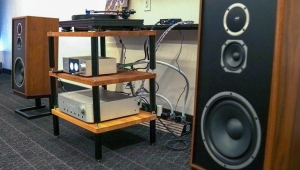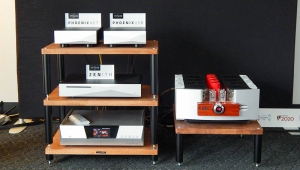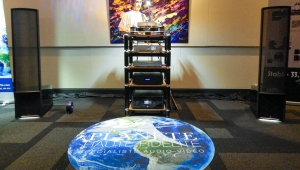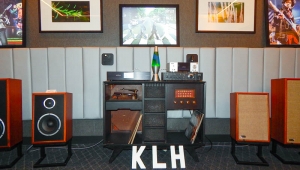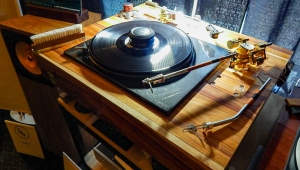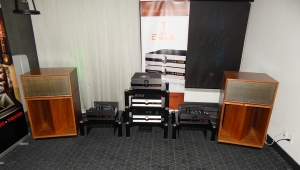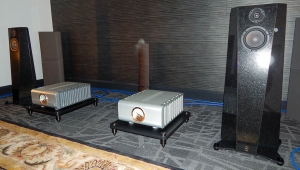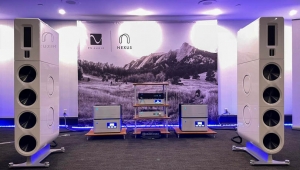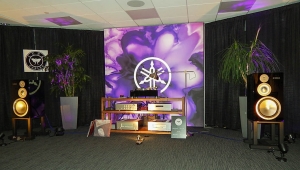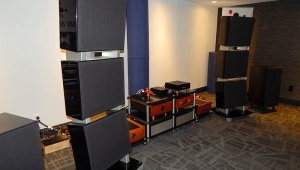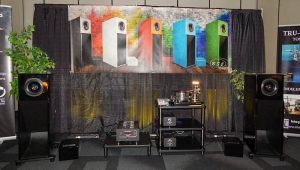| Columns Retired Columns & Blogs |
The DR Audio Room
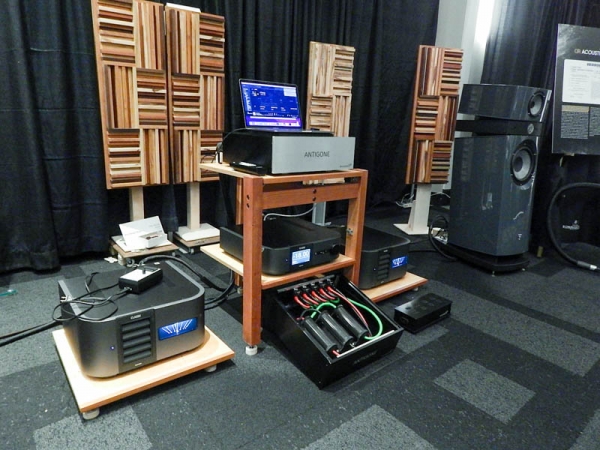
(All prices are in Canadian dollars unless otherwise indicated.)
Quebec-based DR Acoustics is a relative newcomer to the audiophile scene, but the company been making headway lately with its line of cables and AC conditioners. Many exhibitors at this year's show were exhibiting with the company's products, and Classé Audio chose DR Acoustics cabling to use inside their amplifiers.
In a demonstration presented to a cluster of seated onlookers that included me, a representative of the company plugged a run-of-the-mill orange power cord into a Monster Entech Power Line Noise Analyzer (we all should have one), which is designed to measure noise on the AC line above 500kHz. I thought I'd run out of that room screaming (footnote 1). The noise was horrible—an intense barrage of static and hash. The rep then substituted a DR Acoustics Pegasus Extreme power cable ($7495) for the cheapo AC one and … nothing. As much as I pricked my ears in search of a murmur of grit, all I heard was myself breathing. It was an ear-opening presentation.
Another DR product that intrigued me was the Antigone power conditioner ($7500), which is said to use no capacitors, inductors, or resistors and whose design is said by the company to be such that the more power being pulled from it by ancillary components, the more effective it becomes at delivering power. It's like the AC conditioner equivalent of opposite day!
All I know is what I heard, and what I heard, with both the Pegasus power cord and Antigone AC conditioner in a system comprising Classé Delta MONOs ($15,000 each), a Classé Delta PRE ($13,000), and Focal Scala Utopia EVO loudspeakers ($68,998/pair), was music that sounded big and effortless, pristine and spacious, with low frequencies that seemed to rise to the ceiling but without obscuring fine detail. And not a peep of hash. In fact, after listening to the Eagle's "Hotel California," from When Hell Freezes Over, with its great, big tone and multilayered soundstage, I felt I could pick out each individual person in the crowd. I thought, "If people heard this version of this audio-show warhorse, they wouldn't be so tired of it."
FOOTNOTE
1 The Monster Entech device is not a current commercial product, but they're relatively easy to find used or occasionally new. According to information I found online, this meter is sensitive to noise in the 300–700kHz range. The same, seemingly authoritative source says that the sound produced is "amplified demodulated AM FM noise present on the power line under test." The more energy there is in the band the detector is sensitive to, the louder the sound will be.—Jim Austin
- Log in or register to post comments

